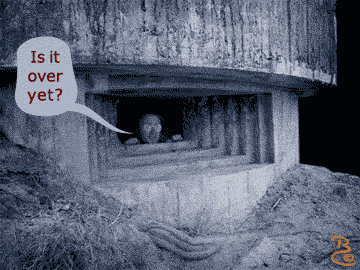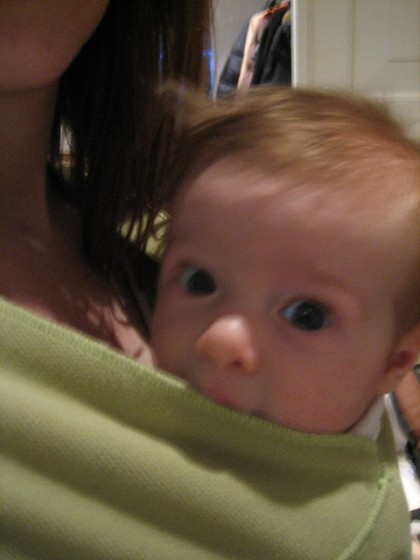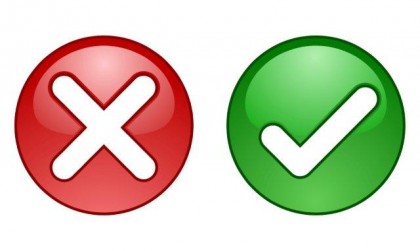The Self-Referential Person: What I Didn’t Mean
Devra Torres | Jun 24, 2013 | 3 cmts
Today’s topic is one that’s very close to my heart, and one on which I used to consider myself an expert.
Last week, inveighing against the “self-referential person,” I wrote this:
It’s a bunker mentality, and it has a certain appeal to, say, apprehensive parents looking out upon a landscape of reckless hedonists, regulation-happy collectivists, self-absorbed politicians, clueless relativists, resolute terrorists, and useful idiots. They figure their best shot at survival is to ghettoize themselves and their dependents as thoroughly as possible and try to avoid contagion.

The only trouble is, this contradicts the essence of the Church.
Katie responded:
I am sometimes actually asking myself whether we have not arrived at a moment in history, something like the end of the dark ages and the beginning of the medieval period, where the best hope of preserving what can be preserved lies in a sort of new monasticism.
I'm thinking not just in terms of avoiding contagion, but of establishing real communities rooted in faith. It's about building our sense of identity.
John Janaro made a related point:
… if you are really seeking God, you can get together with friends and live in the country and interact with the circumstances of life and form cooperatives, institutions, an environment that is itself a witness, that attracts. No plan, no cult, no "leader," just life. It’s natural and good to want to be with your friends and to want to raise your children with good companions and in an environment that gives their humanity a chance to be educated. That's not "hiding," that's building community. And it attracts others. Not just other "club" members, but all kinds of people. "Humanity" just starts showing up, and there's a lot of variety….
I’m glad for the chance to clear this up. Often, when whipping off a few hundred words on some vast, unwieldy topic, I’m tempted to stop and clarify all the things I don’t mean. I try to resist that temptation (as Simcha Fisher advises in this very helpful collection of writing tips), but maybe I should have given in just this once.
What I didn’t mean was to set up a false alternative: either
- (a) huddle in fear and isolation with your children, ignoring the duty to evangelize and the welfare of the souls of all but a few select friends and relatives, or
- (b) recklessly immerse yourself and the innocents in your charge in all the poison and idiocy of pop culture, imagining that this is demanded by the call to be leaven, salt, and light.
As to whether to take a “new monasticism” or “leaven in the loaf” approach, I think the answer is both/and.
I’m a “stay-at-home mom” who practices attachment parenting

(a specially modified version that allowed for large doses of maternal laziness), homeschooling, and the assessment of colleges according to whether my children would be able to find likeminded people who value the faith and intellectual heritage of the West. I try to keep a tight rein on what they wear, watch, and listen to (only to find myself a little shocked when my eldest got her driver’s license and I had to admit I had no way of policing the car radio if I wasn’t in the car). I even got together with a bunch of friends to create a handpicked Red & Ed baseball team for our sons

(who, sure enough, have proven to be fine influences on each other even as they get consistently whomped by the sons of the more pragmatic parents).
I used to think that all people should make these exact same choices, too. I don’t anymore, but, as you can see, I’m hardly of the “Oh, don’t worry, children are resilient” school of thought.
I don’t call this overprotectiveness. I call it having a reasonable idea of what you’re up against. I can relate to much, though not all, of what the author of this post has to say, and this 1999 article by Peggy Noonan puts it well:
Think of it this way. Your child is an intelligent little fish. He swims in deep water. Waves of sound and sight, of thought and fact, come invisibly through that water, like radar; they go through him again and again, from this direction and that.
The sound from the television is a wave, and the sound from the radio; the headlines on the newsstand, on the magazines, on the ad on the bus as it whizzes by—all are waves. The fish—your child—is bombarded and barely knows it. But the waves contain words like this, which I’ll limit to only one source, the news:
. . . was found strangled and is believed to have been sexually molested . . . had her breast implants removed […] . . . said the procedure is, in fact, legal infanticide . . . is thought to be connected to earlier sexual activity among teens . . . court battle over who owns the frozen sperm . . . […] died of lethal injection . . . had threatened to kill her children[…]. . . had asked Kevorkian for help in killing himself . . . protested the game, which they said has gone beyond violence to sadism […] which is about her attempts to balance three lovers and a watchful fiancé . . .
On the other hand, I don’t think protectiveness is incompatible with venturing out, engaging the culture, and being concerned for the souls of people who don’t see it my way at all.
Should we integrate or protect? It depends
- On age and experience
- On temperament
- On strengths and weaknesses of character
- On whether someone is filled to overflowing with God, or is more like a collection of empty spaces, passively waiting to be filled by the world.
I'm not saying we should isolate people until they reach a certain age or level of prudence and then throw them out into the world. Some are called to something like a new monasticism (which is, after all, for the good of the whole human race), while some are called to a life that's planted in the middle of the culture, where they can reach people who would never in a million years seek out wholesome, protected communities. And many are called to some combination of the two.
Nobody, however, is called to retreat out of fear or conceit or indifference, leaving the lost sheep to fend for themselves.

Another reason it’s not simply "either isolation or engagement" is, as John says, that even a sheltered little community, if built in the right spirit, is bound to attract people in ways you wouldn’t have expected. As I noted in the original post, in the natural course of things your family will probably be enlarged and enriched anyway, less isolated and less subject to your control than you had imagined it. And as Katie implies, it’s one thing to seek to avoid contagion—especially to the point where you see the lost sheep solely as a source of contagion, a danger to you and yours—and another to “establish real communities rooted in faith” and “build our sense of identity.”
In the end, it’s a little like an article my sister, Abigail Tardiff, once wrote about natural family planning, and why the Church doesn’t just provide us with a chart to indicate when to pursue pregnancy and when to avoid it (by plugging in, say, your income, some pertinent facts about your mental and physical health, employment status, current interest rates...) and get a straight yes or no.

The trouble with this impersonal approach is the way it circumvents an honest, ongoing back-and-forth with God about the subject.
It’s the same with questions like: Encourage this friendship? Veto that sleepover? To homeschool or not to homeschool? Public, private, or charter?
What we need is the sustained conversation with God about what’s the right choice right now, for this person, or this family, at this moment--keeping in mind that prudence and adventurousness can be perfectly compatible. Of course rules of thumb will emerge. But a blanket rule, even a good blanket rule, is no substitute for that conversation.



Comments (3)
Katie van Schaijik
Jun 28, 2013 8:54am
Great practical wisdom, Devra. Though, just the thought of all that inescapable discernment makes me tired.
I'm pretty sure there's a link between the breakdown of natural community life and the kind of discernment-fatigue people like me suffer, which seems to me a sort of spiritual fibromyalgia.
When there's natural community, we have a way of life handed down to us. When that breaks down, everything has to be questioned, examined, figured-out, re-assembled, doubted, second-guessed, etc., which is exhausting.
Still, I agree with you very much about the insubstitutability of personal judgment. And maddening as it sometimes is, it does seem to me a kind of calling for our generation.
Jules van Schaijik
Jun 29, 2013 6:58am
Katie, as to the link between the breakdown of community life and "spiritual fibromyalgia", Glenn Tinder agrees:
Devra Torres
Jun 29, 2013 2:40pm
"Spiritual fibromyalgia," yes! But of course there's a downside to having everything handed down to us. I had an interesting, and very frustrating, chance to think about that the ten years we were in Spain where, in everybody else's mind there was a "that's just the way it's done" for every occasion, and I'd be the only one saying: But why? Wouldn't it be better this way? What if I prefer something else? Or what if I have a different opinion: could there be any explanation for that other than I'm ignorant and uneducated? In every traditional way of life, there's a mixture of good and bad, but the nice thing is, you don't squander all your mental energy figuring out every little thing from scratch.
Jules, the Tinder quote is wonderful--yes, we're left with a lively sense of how much is riding on our decisions, and how unequipped we are to make them--but without the knowledge of what we're supposed to DO!
We who live on the disintegrating foundations have a unique opportunity, if we can get past the exhaustion and overwelmedness--I suspect it is a calling, and if so, it comes with grace, right?